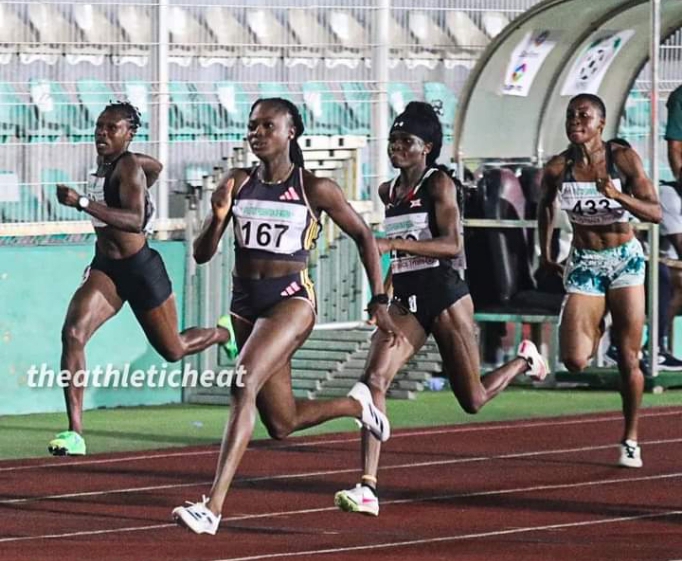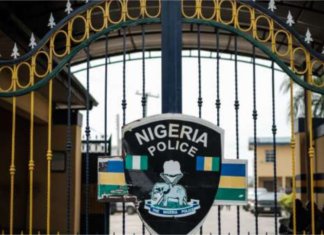By Uzor Odigbo
The Athletics Federation of Nigeria (AFN) says despite the monumental failure of not winning a medal in Paris, it took some ‘positives’ from the just-ended Paris Olympic Games.
AFN Technical Director, Samuel Onikeku said that some of the athletes gave a good account of themselves, though their efforts were not enough to fetch Nigeria a medal.
“I am not happy that we are returning from the Paris Olympics without any medal, but I believe we took some positives from the Games,” Onikeku told AFN Media.
In Paris, U.S.-based sprinter, Favour Ofili made history as the second woman after Mary Onyali to qualify for the final of the 200m at the Olympics. She ran a new 22.05 personal season’s best to come second in her 200m semifinal heat behind reigning Olympics 100m champion, Julien Alfred to secure one of the two automatic tickets on offer in the heat.
READ ALSO: Nigerian born athletes who secured medals for other nations at Paris 2024 olympics
Ofili’s time was the fastest ever run by a Nigerian at the Games, supplanting the 22.16sec Onyali ran in the Atlanta ’96 Olympics on her way to winning a bronze medal in the event.
Also at the Games, young star, Samuel Ogazi ran a new 44.41 lifetime best to make history as the first Nigerian in 36 years to qualify for the final of the 400m at the Olympics. Ogazi has been one of the star athletes of the season and confirmed his growing profile at the biggest sporting stage in the world, the Olympics.
The University of Alabama student-athlete did not just qualify for the final, he improved his lifetime best from 44.52sec to 44.50sec to qualify for the semifinal.
The last Nigerian to run in the final of the 400m was Innocent Egbunike, who ran 44.72sec to place fifth at the Seoul ‘88 Olympics, an improvement on his seventh-place finish four years earlier at the Los Angeles Olympics where he and Sunday Uti became the first Nigerians to run in the final of the event.
Also at the Games Nigeria’ 400m hurdles record holder, Nathaniel Ezekiel becomes the first Nigerian in 12 years to qualify for the semifinals event at the Olympic Games. Nathaniel ran 48.38 to place second in his first-round heat behind Jamaica’s Roshawn Clarke (48.17).
The last Nigerian to run in the 400m hurdles semifinal was Amaechi Morton, who was disqualified after the race at the London 2012 Olympics.
Ezekiel could not fulfil his dream of becoming the first man in 40 years to run in the final of the event after Henry Amike who placed eighth at the 1984 Olympics in Los Angeles, USA.
Rosemary Chukwuma made it to the semifinal, though she could not hit the final to become the first Nigerian to run in the Olympic 100m final in 12 years after Blessing Okagbare at London 2012.
Nigeria’s mixed 4x400m relay team also rewrote their African record at the Paris Olympics as the quartet of Samuel Ogazi, Ella Onojuvwevwo, Ifeanyi Ojeli and Patience Okon George ran 3:11.99sec to erase the 3:12.87sec record they set in May at the World Relays in the Bahamas.
Nigeria also made history in Paris, parading three women long jumpers in the final. Ese Brume left her best for the last with a 6.76m leap to qualify for her third straight Olympic long jump final, just as Ruth Usoro jumped 6.68m in her second to hit the final.
“For the first time in history of the Olympics, a 17-year-old Nigerian jumper, Prestina Ochonogor booked her place in the final. This is a great achievement,” Onikeku said.
Ochongor, who also made the final at the African Senior Athletics Championships in Douala, Cameroon in July, hit the final at Stade de France with her second-round leap of 6.65m.
Unlike Tokyo Olympics, where she rescued a bronze for Nigeria when all hope for a medal was lost, Ese Brume missed the medal this time in Paris by finishing 5th in the final.













